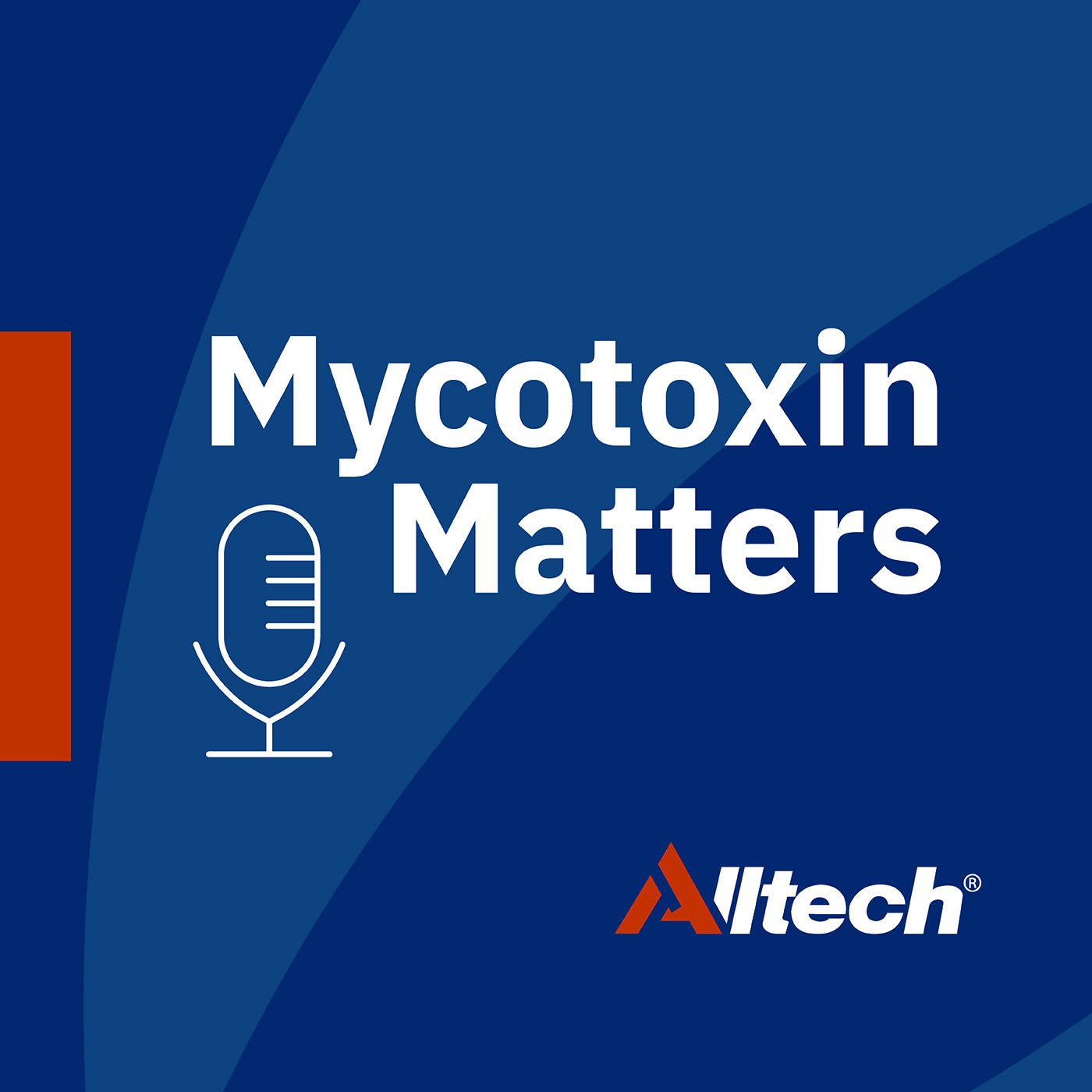Keep ahead of the threat
Stay up to date with the latest mycotoxin information by signing up to our newsletter
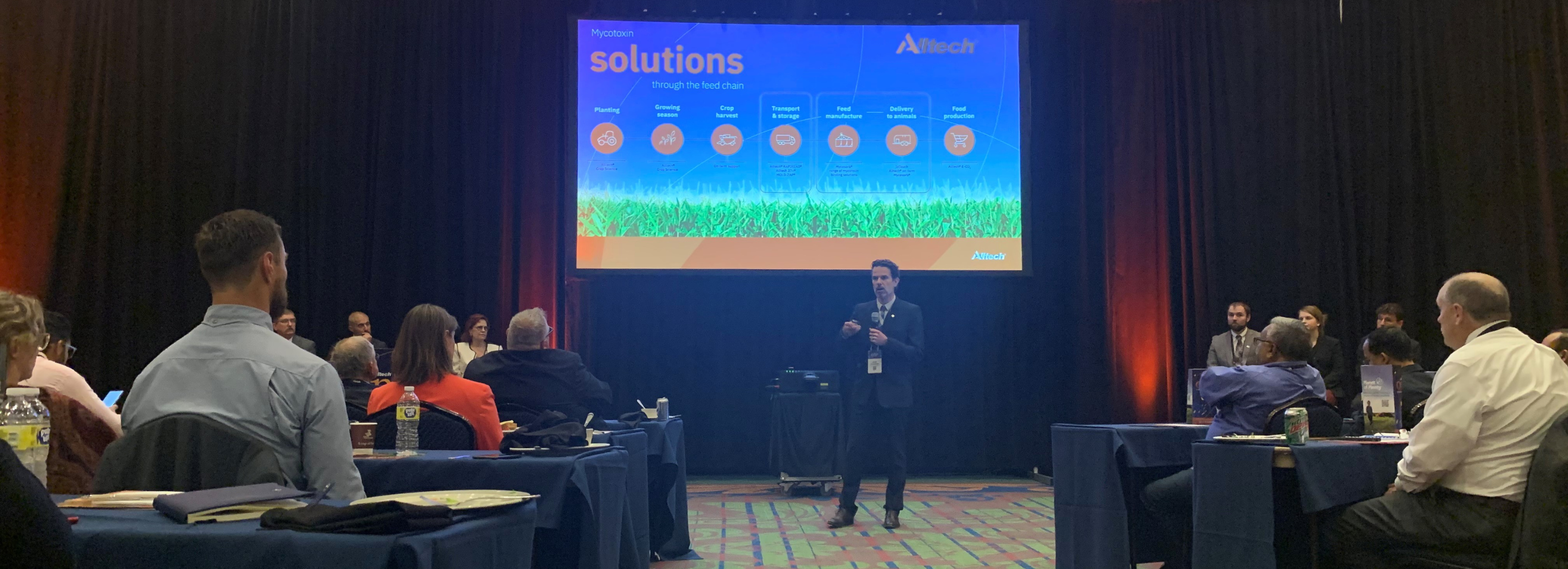
Highlights from the World Mycotoxin Forum and the Alltech ONE Conference 2022
Authors: Martin Minchin, Mycotoxin Management Marketing Manager & Dr. Radka Borutova, European Technical Support Manager
Click below to listen to the Mycotoxin Matters podcast episode with Dr. Radka Borutova and Dr. Alexandros Yiannikouris hosted by Nick Adams. You can also hear the full audio or listen to the episode on Apple Podcasts or Spotify. You can find an edited transcript at the bottom of the page.
After two years of being hosted as online events, both the World Mycotoxin Forum and the Alltech ONE Conference returned to in-person formats in May, with attendees excited to travel and meet again outside of the virtual world.
World Mycotoxin Forum
Hosted in sunny Parma, Italy, for this year’s edition, the World Mycotoxin Forum is the leading international meeting series on mycotoxins, dedicated to assembling the world’s best minds across the spectrum of integrated strategies ensuring the safety and security of the food and feed supply chain. Across the three days of activities, over 400 attendees from research, the feed and food industry, policy makers and regulatory agencies networked, shared ideas and formulated recommendations on how to continue to close knowledge gaps in mycotoxin control. Alltech was proud to be a silver sponsor of this year’s event, with five members of our team present and taking part in plenary presentations, research poster sessions, workshops, the young scientist forum and the industry exhibition area.
The increasing challenge of mycotoxins in the feed and food chain dominated many conversations at the World Mycotoxin Forum, with widespread acknowledgement that factors such as climate change and reduced crop diversity are leading to greater levels of challenges. Soil health and its importance in pre-harvest mycotoxin control was discussed more widely than ever before. Staying with the sustainability theme, it was noted that mycotoxins, even when consumed at lower levels, are increasing the carbon footprint of animal agriculture through reduced livestock productivity, and this was cited as an area that needs further research. Although the effects of mycotoxins as predisposing factors in the pathogenesis of viral/bacterial diseases and in vaccine and therapy failure is now more widely discussed, there was an appreciation that more work is needed in this area to solidify any change in management strategies.
Data-based monitoring, supported by advances in tools like machine learning, was highlighted as an area that can lead to better decision support tools and can help with more accurate prediction of mycotoxins pre-harvest. In terms of the mycotoxin danger to humans, research is suggesting that chronic low-dose exposure of multiple mycotoxins has the potential to lead to synergistic effects and human carcinogenesis. Like many of the big topics discussed at the World Mycotoxin Forum, more research is needed in this area. Compounding the challenge for humans is the shift to plant-based diets, as those who are consuming this type of diet are exposing themselves to a greater mycotoxin risk.
A very timely and relevant area of discussion arose during this year’s forum: Do our mycotoxin regulations need some rethinking in light of the current food security challenges? Although stringent regulatory controls have been designed to safeguard human health and support the global trade in commodities, could such regulations now exacerbate what is already a creaking global food supply?
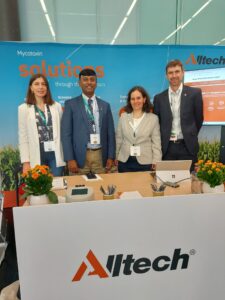
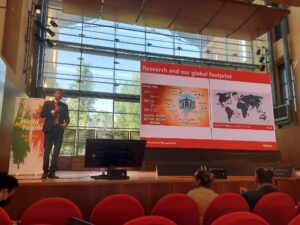
A World Without Mycotoxins
Once the World Mycotoxin Forum concluded, our team headed directly to Lexington, Kentucky, for the Alltech ONE Conference (ONE), one of the most prominent annual global agri-business events. Continuing the mycotoxin theme at ONE, Alltech’s mycotoxin management team hosted a workshop, titled “A World Without Mycotoxins,” which allowed us to expand on many of the topics for discussion that arose in Parma at the World Mycotoxin Forum. This session brought together experts from across the feed supply chain and explored how we can better manage mycotoxins at each of the key control points.
Nick Adams firstly highlighted how, as an industry, we have yet to solve the mycotoxin problem, and in many regions, it is actually getting worse, with subsequent negative impacts on people’s health, our planet’s future and producers’ profit. Starting at the pre-planting stage, our Alltech Crop Science colleagues highlighted the importance of soil health in minimizing fungal build-up and subsequent mycotoxin development. The panellists then looked at some of the options to reduce mycotoxins at grain intake or during storage. Sensor and data technology is becoming more affordable and opening up exciting opportunities to better manage grain storage. The shift to this type of technology does remain slow, however, due to the traditional nature of many feed businesses.
Ronald Faber, CEO of Alltech Coppens, a specialist aquaculture feed mill based in the Netherlands, presented an integrated approach to quality control that is enhancing decision-making around the acceptance protocols for ingredients and the need for the inclusion of mycotoxin binders in their range of finished feeds. This is a system that can easily be implemented in many mills. Learn more about it here.
When speaking about the multiple mycotoxin challenges, Dr. Alex Yiannikouris, research group director at Alltech, noted how in-feed ingredients must be capable of dealing with a large spectrum of mycotoxins in order to achieve effective mitigation. Dr. Yiannikouris also shared how Alltech’s mitigation research has predominantly focused on replicating field contamination scenarios, both in terms of the mycotoxin impact on the animal and the ability of adsorbents to reduce this impact.
Although there was widespread agreement that delivering a world without mycotoxins is not without many challenges, Nick Adams wrapped up the workshop by stating that “the future of mycotoxin control lies in a totally interconnected approach, and the key is to bring together all the tools at our disposal in the feed supply chain to ensure we are protecting our people, our planet and our producer’s profit.”
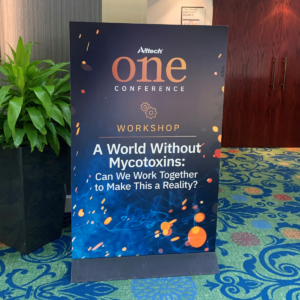
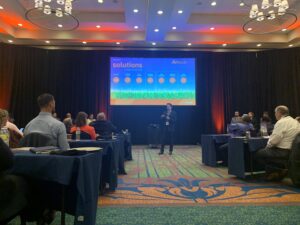
To find out more about Alltech’s approach to mycotoxin management and the team’s recent activities following these in-person events, please visit our LinkedIn page at Alltech Mycotoxin Management.







